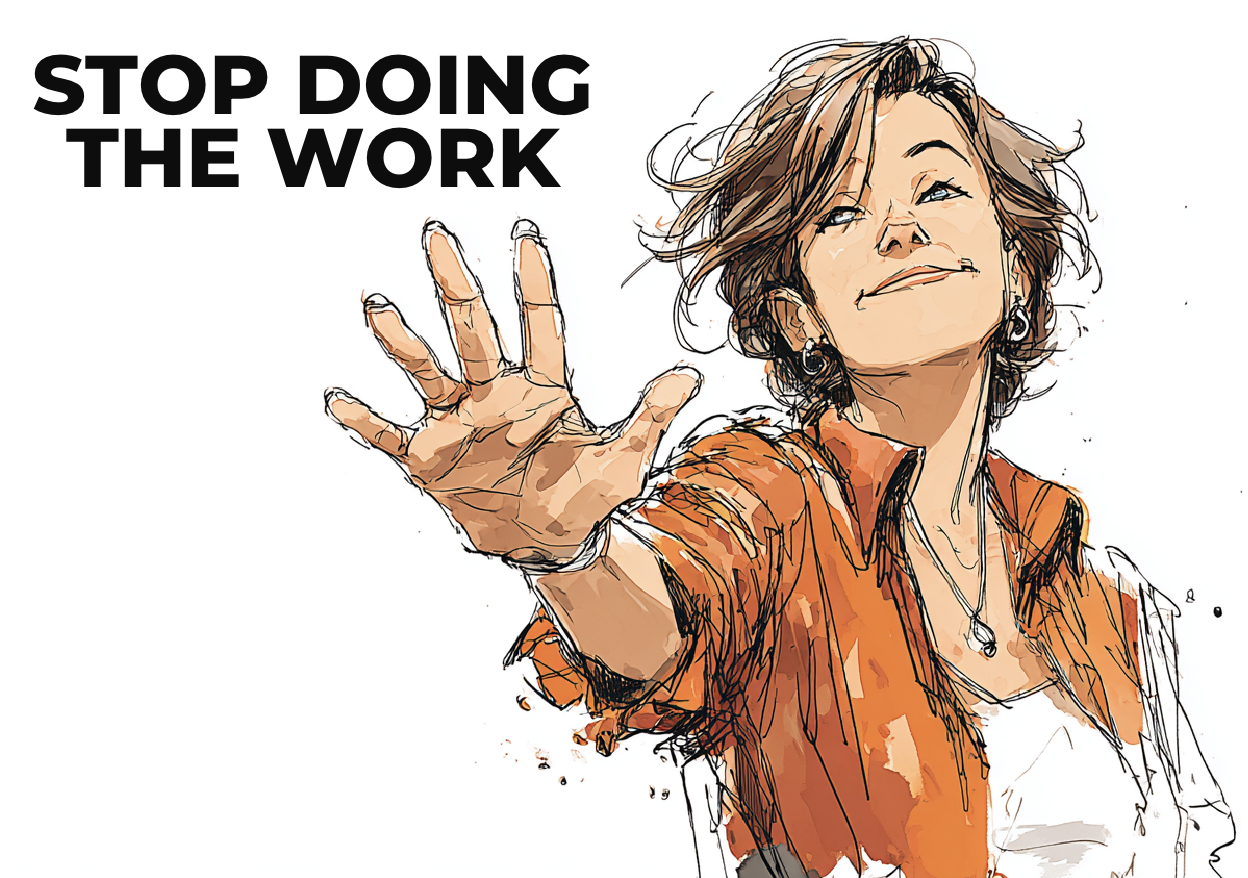You’ve tried doing the work. It felt like going to the dentist.
Not just any dentist. The dentist from Little Shop of Horrors.
You don’t need more discipline.
You need safety and space to remember who you really are.
STOP DOING THE WORK is a six-week guided experience designed to help you drop your armor and rediscover who you were before you learned how to perform.
It’s part me, part AI.
(I don’t mean I’m a cyborg. We take turns guiding you.)
COME ON IN…
This is way beyond fun. In recent weeks, one after another client is raving about my new hybrid approach. It’s faster and more effective than anything I’ve offered in the past.
Here’s how it works…
Session 1 (60 minutes): This is a very human conversation, heart to heart and genuine. We meet via Zoom, and my sole goal is to see you .in all your complexity and wonder.
Between sessions: You will visit my password-protected website to participate in my AI-based Ikigai Interview. This is also a conversation, but it’s you and an AI designed to pull the real you out from under years of extra stuff. It will ask you 80 questions or more. You go do it on your own time… no social performance, no one watching, just you and the questions.
Before we talk again: I’ll review a transcript of your completed Ikigai interview. I’m not just reading your answers; my role is to see the person in the answers. The patterns. The contradictions. The things you said that you don't (yet) realize are extraordinary.
Session 2 (60 minutes, ~2 weeks later): I walk into our conversation with a much deeper understanding of who you are. I help you put words to emotions and reactions that are coming to the surface. The armor cracks. You feel what self-acceptance is.
Session 3 (60 minutes, ~2 weeks later): We talk again What are you feeling? Where are you drawn? I’m not directing. I’m witnessing the first moves of a person who just discovered yourself. I’m making sure the recognition is holding.
You are now a giant step closer to personal growth as an act of joy and fulfillment, rather than as an exercise in frustration.
Visit the dentist or go outside to play. Which sounds better?




